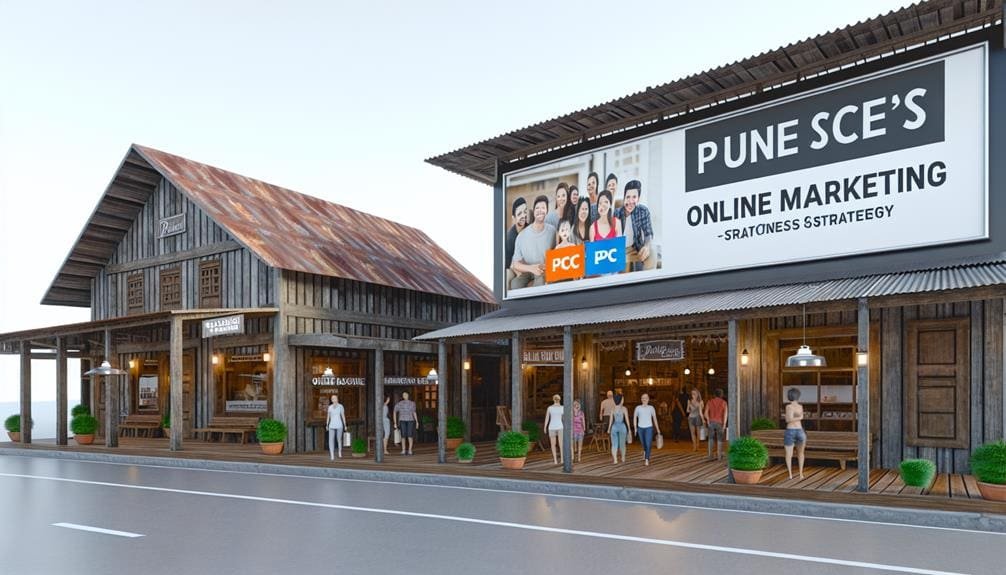5 Key Tips for Startup-Focused Custom PPC Solutions
February 20, 2024 | by Jacob Cavazos

As startup entrepreneurs, we often liken our journey to that of a ship navigating through uncharted waters. Just as a skilled captain relies on a combination of knowledge, experience, and strategic decision-making to steer their vessel toward its destination, startups must also employ a similar approach when it comes to custom PPC solutions. In today's dynamic digital landscape, where competition is fierce and consumer behavior constantly evolves, it's crucial to harness the power of targeted advertising to propel our businesses forward. With that in mind, let's explore five key tips for startup-focused custom PPC solutions that can help us chart a course toward sustainable growth and success.
Understanding the Startup's Target Audience
We analyze the characteristics, preferences, and behaviors of the startup's target audience to create tailored PPC strategies that resonate with them. Understanding the specific needs of small businesses embarking on their digital journey is crucial. By delving into SEO data and market research, we help startups identify their ideal customer and craft ad campaigns that speak directly to them. Our approach involves continuous monitoring of ad performance and audience feedback to refine landing pages and ad experiences. Leveraging audience segmentation, we ensure that each interaction is personalized and relevant. This targeted strategy not only improves PPC performance but also fosters stronger connections with potential customers. Our commitment to staying updated on shifts in the target audience's needs and preferences ensures that our strategies remain effective in the ever-evolving digital landscape. Ultimately, our data-driven insights empower startups to make informed decisions and achieve optimal results from their PPC efforts.
Crafting Compelling Ad Copy
Crafting compelling ad copy involves strategically utilizing language that captivates attention and entices clicks by highlighting unique selling points and benefits. It's crucial to use clear and concise language to effectively communicate the message. Incorporating relevant keywords in the ad copy is essential for improving visibility and relevance. Testing different ad variations is also necessary to optimize performance and find the most compelling copy. Creating ad copy that aligns with the landing page and encourages conversions is a key aspect of a successful PPC campaign.
To further illustrate the importance of crafting compelling ad copy, consider the following table showcasing the elements necessary for effective ad copy:
| Elements | Description |
|---|---|
| Clear and Concise | Use language that is easy to understand and gets straight to the point. |
| Unique Selling Points | Highlight what sets your product or service apart from the competition. |
| Relevant Keywords | Incorporate keywords that are relevant to your target audience and industry to improve visibility and relevance. |
| A/B Testing | Test different ad variations to determine which copy performs best and resonates most with your audience. |
Crafting compelling ad copy is a vital component of any PPC campaign, as it directly impacts click-through rates and conversions. By focusing on language that captivates, communicates effectively, and aligns with landing pages, businesses can create more successful and engaging ad copy.
Implementing Location-Specific Keywords

Implementing location-specific keywords builds on the foundation of crafting compelling ad copy, allowing businesses to further tailor their PPC campaigns to the specific geographical locations and search intent of their target audience. Identifying and incorporating location-specific keywords is crucial for optimizing SEO efforts and enhancing the relevance of ad campaigns. By utilizing an SEO tool to identify location-specific keywords, businesses can ensure they're aligning their PPC strategy with the organic search behavior of their target audience.
When implementing location-specific keywords, it's essential to consider the regional variations in search terms and the specific language used by the local audience. Understanding the regional nuances and incorporating relevant keywords can enhance the effectiveness of PPC campaigns, catering to the local buyers' journey and increasing the chances of capturing their attention.
Furthermore, leveraging location extensions and geo-targeting features enables businesses to reach audiences in specific locations more effectively. This targeted approach not only improves the relevance of ads but can also result in lower cost per click, as there is often less competition for location-specific keywords. By monitoring the performance of location-specific keywords and adjusting bids and ad spend accordingly, businesses can optimize their campaign ROI and ensure they're reaching potential customers when and where they're looking.
Utilizing Conversion-Driven Landing Pages
Utilizing conversion-driven landing pages is essential for maximizing the impact of PPC campaigns and driving significant improvements in conversion rates. When creating landing pages, it's crucial to focus on clear and compelling headlines, persuasive content, and prominent call-to-action buttons to guide visitors towards conversions. Optimizing landing pages for mobile-friendliness and fast loading is equally important for enhancing user experience and boosting conversions, considering the increasing mobile traffic. Implementing conversion tracking on landing pages is a must to measure the success of PPC campaigns and optimize for better ROI. Regular monitoring and optimization of landing pages are key for improving campaign performance and achieving better conversion rates. Here's a table summarizing the essential elements of conversion-driven landing pages:
| Key Elements | Description |
|---|---|
| Clear and Compelling Headlines | Engage visitors and convey the value proposition effectively. |
| Persuasive Content | Influence visitors to take the desired action through compelling messaging. |
| Prominent Call-to-Action Buttons | Guide visitors towards conversions with clear and visible CTAs. |
How Can Seasonal PPC Campaigns Be Incorporated into Startup-Focused Custom PPC Solutions?
Incorporating seasonal PPC strategies into startup-focused custom PPC solutions can help in leveraging specific holidays or events to maximize brand exposure and drive more traffic and conversions. By aligning PPC campaigns with seasonal trends, startups can capture the attention of their target audience and increase ROI.
Monitoring and Adjusting Campaign Performance

Maximizing the effectiveness of PPC campaigns requires vigilant monitoring and strategic adjustments to ensure optimal performance and ROI. Monitoring campaign performance in real-time is crucial for startup-focused custom PPC solutions. By analyzing key metrics such as click-through rates, cost per click, and conversion rates, we can make informed decisions to optimize campaign performance. It's essential to constantly assess the effectiveness of your ads and landing pages to identify any underperforming elements and make adjustments accordingly.
Startup-focused custom PPC solutions should leverage advanced tracking tools to help you identify which keywords, ad copies, and targeting options are driving the best results. By closely monitoring these metrics, you'll know what's going well and where adjustments are needed. Moreover, it's important to stay on top of market trends and competitor strategies to adapt your campaigns proactively.
Now is the time to start implementing a robust monitoring and adjustment strategy for your PPC campaigns. This approach will not only improve your campaign performance but also ensure that you're maximizing your ROI.
Frequently Asked Questions
What Are the 5 Key Aspects of Ppc?
We prioritize budget management, keyword optimization, ad copywriting, landing page optimization, and conversion tracking in our PPC strategy. Our approach emphasizes ad targeting, scheduling, quality score, testing, and performance analysis to maximize ROI and drive growth.
What Are Your Strategies to Make Your PPC Campaign More Effective?
To make our PPC campaign more effective, we target high-intent keywords, craft compelling ad copy, optimize landing pages, allocate budget wisely, use ad extensions, track conversions, A/B test, analyze competitors, improve quality score, and schedule ads strategically.
What Are Strategic Decisions Required to Make in Setting up a PPC Campaign?
To set up a PPC campaign, strategic decisions entail budget allocation, keyword targeting, ad copywriting, landing page optimization, bid management, audience segmentation, ad extensions, conversion tracking, ad scheduling, and competitor analysis. These factors drive campaign success.
What Makes a Successful PPC Campaign?
In our experience, a successful PPC campaign involves targeted keywords, compelling ad copy, and effective conversion tracking. Regular A/B testing, audience targeting, and budget allocation are crucial for optimizing performance and achieving results.
RELATED POSTS
View all



